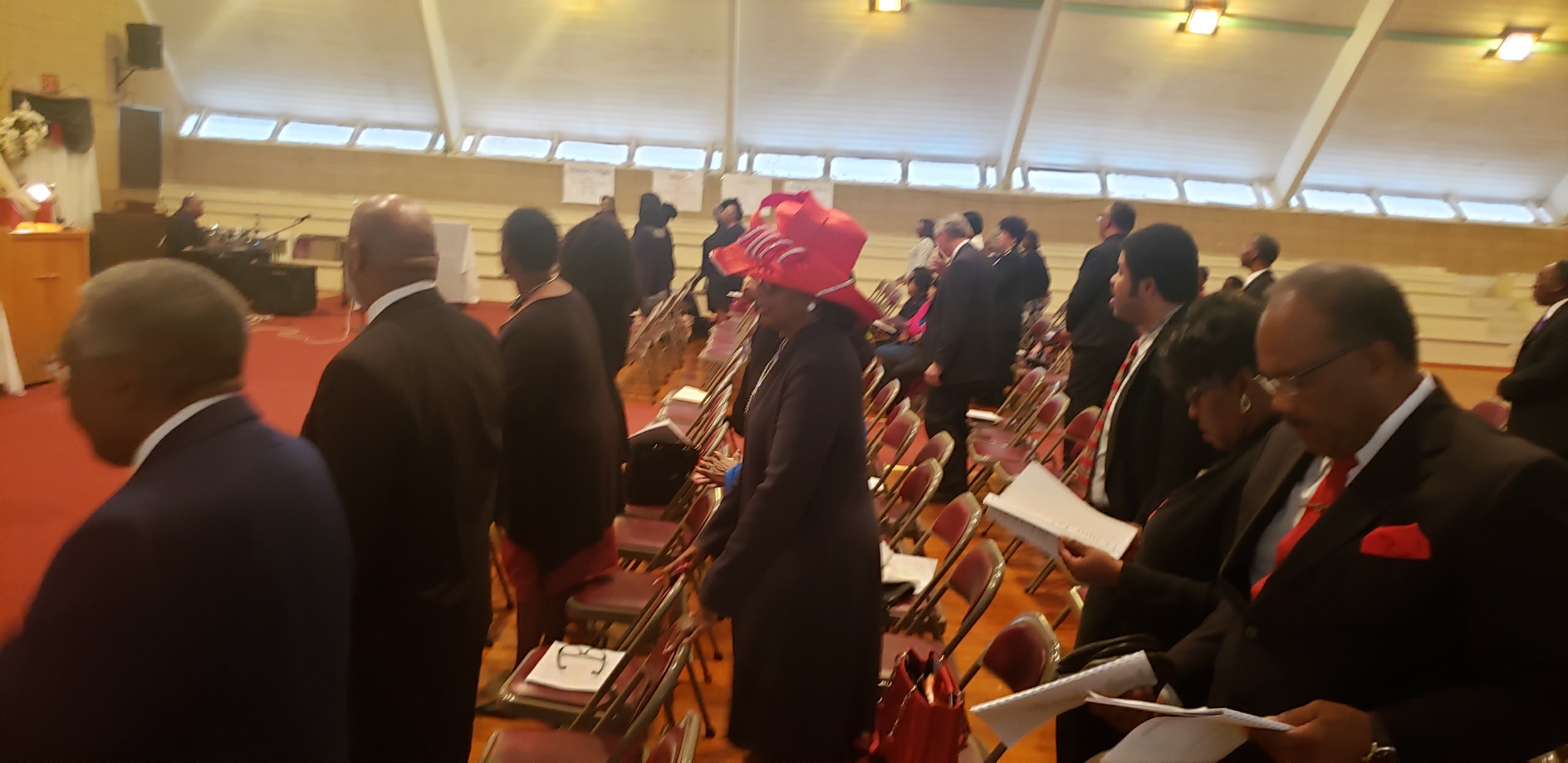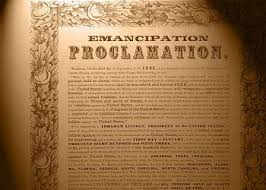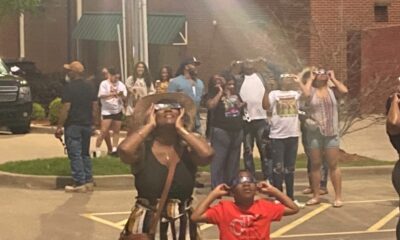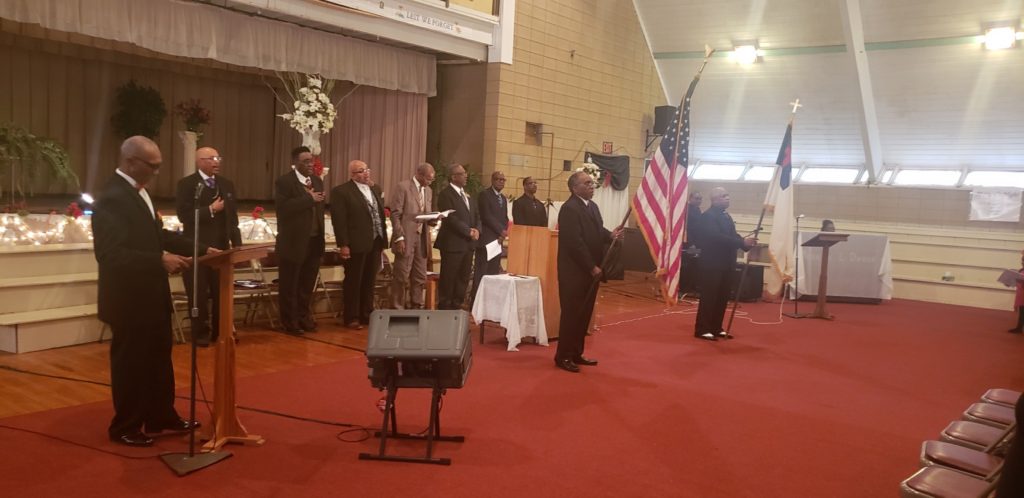Featured
How Honoring the Emancipation Proclamation Created a Decades-Long Tradition

A pound cake stood tall on a long table in the back of the auditorium and not far from it were mounds of chicken salad sandwiches. The two women setting up the food station spoke cordially while from the front of the cavernous space rose the voices of a cluster of singers quickly running through the chorus of the Negro spiritual, “Ezekiel Saw the Wheel”, an impromptu rehearsal for the day’s annual Emancipation Proclamation program that began in 1956.
“My husband and I married in 1961, and I have only missed two years,” says Bobbie Walker who baked the pound cake. “Freedom, freedom, freedom!” she exclaims.
Linda Rogers Lambert also recalls the early years when members of churches in southern Arkansas gathered each year on the first Sunday in January to reflect on the historical significance of the document President Abraham Lincoln signed in January 1863 giving freedom to the enslaved in the Confederate states.
“When I was younger, I came because we could go out to eat at Mrs. Lambert’s after the program,” she shares. But over the decades, Lambert grew to appreciate the meaning of the day. She moved away but says she hasn’t “missed one since coming back in 2015.”
Today, she works with the local chapter of the NAACP which sponsored this year’s program. Lambert wants teenagers to understand the history of the Emancipation.
“I asked, ‘What will draw the younger people?’ So, we offered a $50-dollar gift card to write an essay,” Lambert said.
Dr. Ray Winbush, Director of the Institute for Urban Research at Morgan State University, says there is a national increase in observances like the Emancipation Proclamation and Watch Night services held in churches on New Year’s Eve and traced to the anticipation surrounding the announcement of the Emancipation Proclamation.
“We see ourselves in them…Kwanzaa, Malcolm’s birthday, and Black Love Day…and not the traditional holidays which mostly celebrate wars and people don’t look like us,” Winbush stated. “It’s mentally healthy to see one’s culture in any celebration.”
Emancipation History & President Abraham Lincoln

Dr. Sekou Franklin, professor at Middle Tennessee State University, adds, “I think we should still celebrate it as a way to lift up contemporary issues.”
Franklin points out the circumstances surrounding President Lincoln’s decision to issue the Emancipation Proclamation.
“The politics are so complicated,” Franklin remarks. “When he issued the Emancipation Proclamation, it was a settle down Proclamation. Today we would call it an Executive Order using emergency powers.”
The Proclamation freed the enslaved in the states and territories that were fighting against the Union, declaring that as of January 1, 1863, all slaves in those areas “shall be then, thenceforward, and forever free.” Lincoln, who inherited the Civil War, sought to balance a coalition of free states and states that allowed slavery but remained loyal to the Union (border states). And, the American public supported a Civil War to preserve the Union but not necessarily to abolish slavery. A shifting political reality paved the way for the Emancipation Proclamation.
“He probably signed it because he actually believed they should be free. Despite his rhetoric, I think he opposed slavery,” Franklin said. “I think there was an abolitionist push that was much more aggressive than previously. And, I also believe Lincoln signed it for military expediency…they needed a surplus. If you free enslaved persons, many of them are fleeing to the north anyway, you have a surplus of soldiers like 180,000.”
With Black men joining the Union Army, there was assistance to build bridges, serve food, and carry soldiers from one part of the field to the other. The Emancipation Proclamation improved the Union’s chances of winning the Civil War by providing free labor the Confederacy could no longer utilize as an advantage. And, Winbush cites another benefit of the Emancipation Proclamation.
“Also, it had a psychological effect on the enslaved because they knew that Lincoln was ‘on their side,’” he says.
Two more years would pass before the war ended. The 13th Amendment which formally abolished slavery passed in the Senate in April 1864 and the House on January 31, 1865. The Emancipation Proclamation had been a preview of the country’s future.
“Lincoln is a great president,” Franklin asserts. “My position is that we have empirical, real live evidence of what a President could do before and after Lincoln, given similar circumstances. When the question of slavery…when the question of succession, when those questions were put to them…they leaned toward the South. A visceral pro-slavery position. He was killed for it. He took a bullet for it.”
And, 157 years later, Lincoln’s decision to issue the Emancipation Proclamation is still honored and celebrated for the historical impact it had on a nation and a people.

-

 Featured12 months ago
Featured12 months agoArkansas Sheriff Who Approved Netflix Series Says He Stayed ‘In His Lane’
-

 HBCUS12 months ago
HBCUS12 months agoSenator Boozman Delivers $15 Million to Construct New UAPB Nursing Building
-

 News12 months ago
News12 months agoMillions In the Path of The Total Solar Eclipse Witnessed Highly Anticipated Celestial Display
-

 Featured9 months ago
Featured9 months agoCalifornia Is the First State to Create A Public Alert for Missing Black Youth
-

 Featured9 months ago
Featured9 months agoAfrican American Leaders Stay the Course Amid Calls for President Biden To Bow Out of Race
-

 Featured9 months ago
Featured9 months agoThe Debate Fallout Lands on Both Candidates










